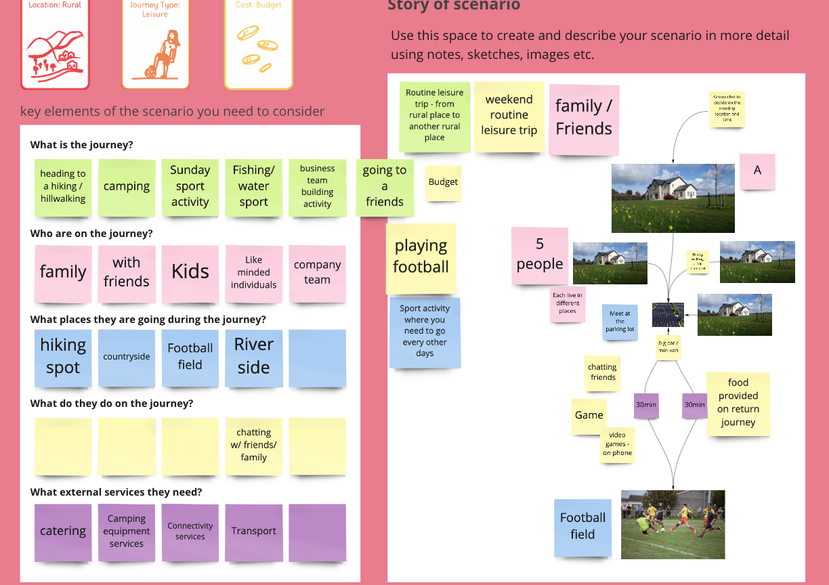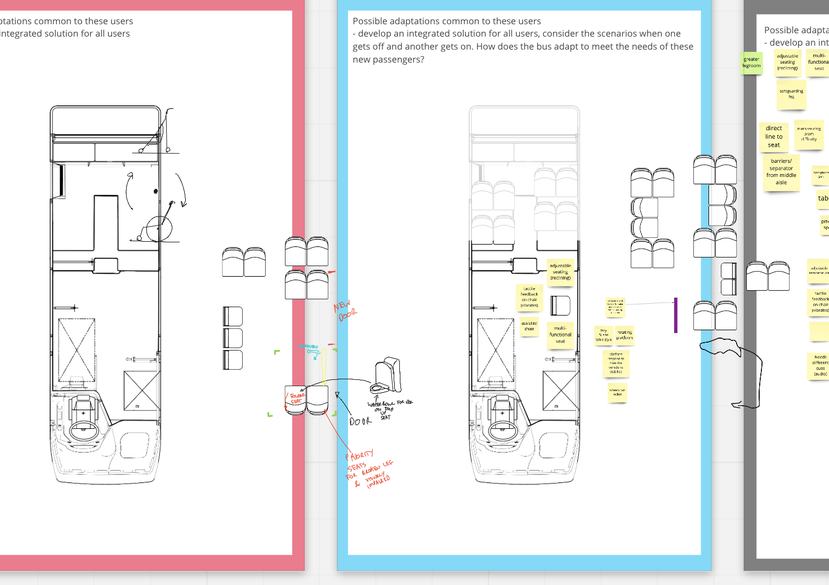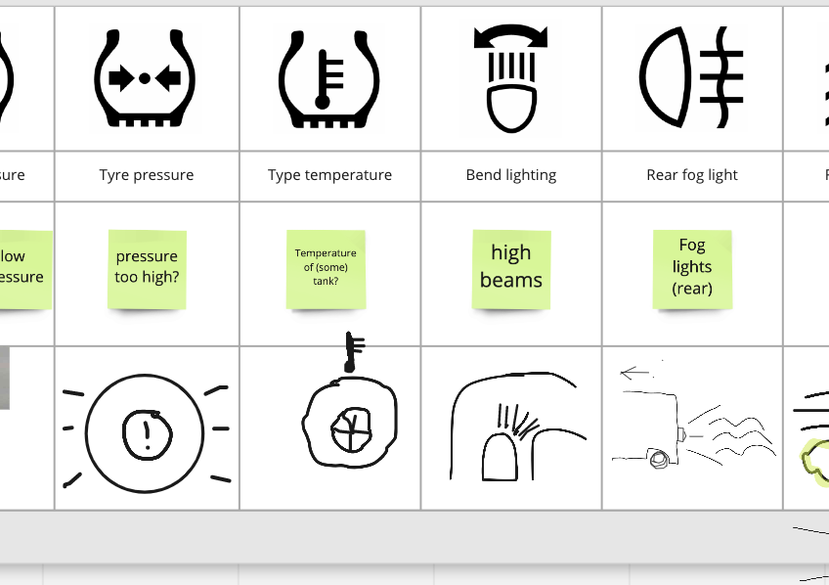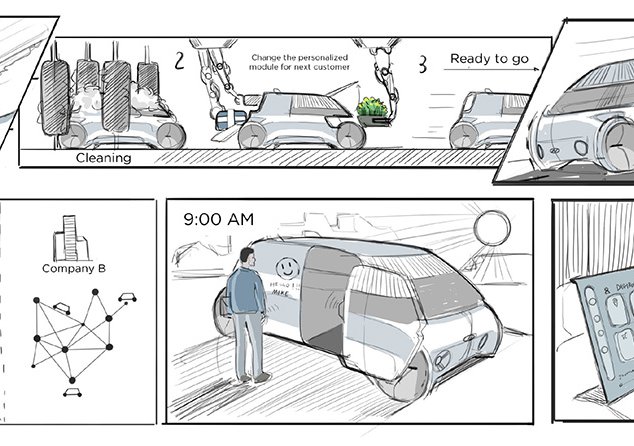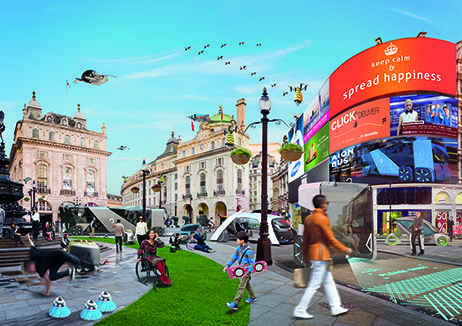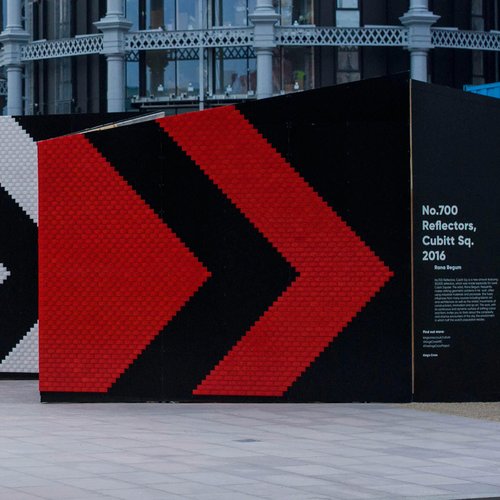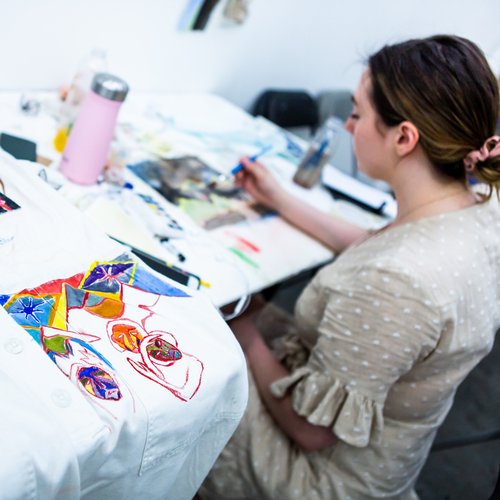
Explore key human-centred design principles and how to apply practical tools that place the human experience and people at the centre of transport decision-making, led by the RCA’s Intelligent Mobility Design Centre live online.
Key details
Fees
- Regular fee: £750
Location
-
Live online
Three sessions over a week
9am - 12.30pm BST per session
Intelligent mobility is about technology, design, people and culture combined.
This intensive online short course will expose you to current and emerging mobility trends and changing user behaviours in key markets through real world case studies and specialist guest lectures that cover a wide range of topics, including:
- alternative mobility services such as shared vehicle schemes
- emerging technologies for better, quicker, cheaper outcomes today
- micro transportation (eg. dockless scooters)
- predicting demand for new vehicle types (e.g. autonomous and electric vehicles)
- public transport
- privately owned cars.
Developed by esteemed academics and designers from the RCA’s Intelligent Mobility Design Centre and led by Dr Jiayu Wu, Reader in Intelligent Mobility Design – you will have access to unique knowledge on design principles and research methods, developed over two decades while working with half of the world’s top ten largest automotive companies.
Guest speakers* will provide diverse insights for inspiration for the participants' projects:
- Professor Dale Harrow, Chair and Director of Intelligent Mobility Design Centre at the RCA, will speak about new vision of mobility research and design
- Rama Gheerawo, Director of Helen Hamlyn Centre for Design at the RCA, will talk about inclusive design and its application in mobility research and design
- Rikesh Shah, Head of Open Innovation at Transport for London, will discuss connected vehicle data, transport innovation, and London's evolution as a city
- Martin Uhlarik, Head of Global Design, Tata Motors, will give fresh industry insights into vehicle and mobility design principles.
* More industry guest speakers to be announced soon.
You will connect with a group of global participants and advance your knowledge by working together using real world case studies and customised toolkits and creative processes, guided and supported by RCA academics.
You will have the opportunity to put into practice our SAFE (Simple, Adaptable, Familiar, Environment) principles and tools for future mobility developed for rethinking the most imperative issues such as sustainability, inclusivity, and efficiency from the perspective of individuals.
Watch our IN SESSION talk: What is Intelligent Mobility? with Dr Jiayu Wu, Martin Uhlarik and Rikesh Shah.
About the course
What is Intelligent Mobility?
Intelligent mobility isn’t just about the automotive industry, it is about transport in the broadest sense, including people and goods, the built environment, and how planning and policy address the shift in mobility.
The RCA’s Intelligent Mobility Design Centre (IMDC) is an interdisciplinary centre exploring, experimenting, prototyping and evaluating new mobility and automotive transitions via the synthesis of design and research methods. It leads research at the intersection of people, mobility and technology within a complex and changing urban and global environment. It integrates design and technology with insights into people and the social, environmental and economic context to enable a 360 view on the design of future mobility.
The RCA has delivered the world’s leading Intelligent Mobility MA, working with industry and policymakers for over 30 years – training the designers of the future. The 35 alumni design directors in global mobility corporations from Jaguar Landrover, Volvo, BMW, Audio Group to Rolls Royce and Bentley are testament to the relevance of our knowledge and experience.
Course structure
Day 1
Introduction to Intelligent Mobility and SAFE Design Principles
- Introduction to Intelligent Mobility
- Keynote talk & questions - future mobility and inclusive design
- SAFE human-centred design principles
- Group exercise - Design Principle 1: Simple
- Networking post-session (optional)
Day 2
Human Centred Design toolkits for mobility concepts in practice
- Introduction to human-centred design principles
- Real-world cases in road safety and smart traffic innovation (TBC)
- Group exercises - Design Principles 2 and 3: Adaptable and Familiar
- Networking post-session (optional)
Day 3
Human Centred Design toolkits for mobility concepts in practise
- Further human-centred design principles
- Real-world cases for commercial mobility design (TBC)
- Group exercise - Design Principle 4: Environment
- Group feedback
- Networking post-session (optional)
Disclaimer: The information given is accurate at the time of publication, however, the RCA reserves the right to amend the described course as circumstances dictate.
Personal and organisational benefits
The benefits to you and your organisation include:
- an introduction to key human-centred design principles and research methods
- access to global best practice in intelligent mobility design
- return to your organisation with a set of human-centred design case studies and toolkits to put into practice
- interact and network with peers from different backgrounds and functions
- a certificate of online attendance.
What will you learn?
This interactive live online course is delivered over three x 3.5 hour sessions.
Module 1: user centred vs technology driven – mobility examples
Welcome and keynote introduction to user experience design principles and practical methods for mobility research innovation.
- Learn about user centred mobility design principles
- Review selected case studies comparing human-centred and technology driven outputs
- Discuss selected case studies
- Explore user centred methods for mobility innovation
Module 2: Practice using user centred toolkits for mobility projects
- Work in groups focusing on one design principle
- Practice with dedicated human-centred toolkits
- Switch groups and experience different design principles and toolkits
- Open discussion of design principles
Module 3: Design creative processes and methods for your own projects
- Learn skills for designing human-centred toolkits for your mobility innovations
- Create your own mobility innovation processes guided by creativity facilitators
- Evaluate them with a provided evaluation framework
The course reflects the RCA experience with small class sizes and rich interaction between students and academics within a supportive and creative learning environment.
How will you learn?
Learning will take place live and online in three sessions of three-and-a-half hours.
The sessions will include a combination of keynote lectures as well as a series of practical group exercises.
Guest speakers
The course contributors include:
Professor Dale Harrow, Keynote Lecture: Chair and Director of Intelligent Mobility Design Centre at the RCA, will speak about new vision of mobility research and design.
Rama Gheerawo, Director of Helen Hamlyn Centre for Design at the RCA, will talk about inclusive design and its application in mobility research and design.
Rikesh Shah, Head of Commercial Innovation at Transport for London, will discuss using connected vehicle data, transport innovation, and London’s evolution as a city.
Martin Uhlarik, Head of Global Design, Tata Motors, will give fresh industry insights into vehicle and mobility design principles.
Online delivery
The course is organised in synchronous sessions in a live virtual environment that combines various digital platforms and tools.
Zoom
Using the videoconferencing service Zoom, the RCA's esteemed academics and facilitators deliver a mix of:
- live lectures
- case studies
- guided assessments
- presentations
Participants interact with the faculty and peers in breakout rooms in real time.
Miro
Participants engage in cross-functional team work with the use of visual collaboration tools.
Through the online whiteboard platform Miro, participants get to:
- interact with various formats and templates
- plan and brainstorm ideas
- create processes and workshop activities in the digital workspace.
Moodle
The College's learning platform Moodle is personalised according to the course's requirements to provide participants with a secure integrated system where they can access the course content.
The hub hosts a range of useful resources to enable the learning experience, including comprehensive timetables, pre-reading materials, course slides, curated videos, tutorials and session recordings.
Slack
Participants stay connected and communicate via the channel-based messaging platform Slack throughout the whole duration of the course.
In this space, the academics, facilitators and delegates get to network, plan the course activities, share documents and files during the live sessions or offline.
Who should attend?
The course is ideal for:
- Mobility designers
- Researchers and practitioners developing user-centred design for vehicles or transportation services
- Designers, strategists, operators and policy makers who are interested in learning user-centred design and applying it to their automotive or transport related projects
- Technology and design start-up companies whose topics are related to mobility innovations
- Early-career and senior professionals
- Recent graduates
Admission criteria
It would be helpful to have:
- an understanding of human-centred design principles and design thinking
- basic knowledge of vehicle/transportation/new mobility services
- be comfortable with digital tools
- have a good level of English language
Gallery
Contact us
Get in touch with us if you'd like to find out more about this or any of our other short courses.
short-courses@rca.ac.uk




